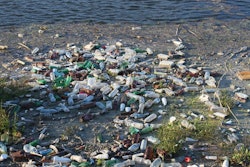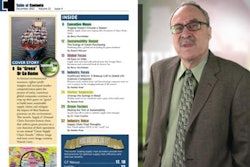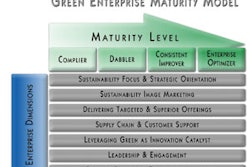In many circles, the green in a good sourcing department is usually at odds with the green in our environment. Purchasing has always been driven to reduce the expenses (green as in money), and this often would inhibit expanding alternatives that could drive up costs (green as in the environment). So how do we get by this impasse and create a sustainable environment for future generations?
The key is to question the status quo and not accept business as usual. For a procurement organization accustomed to looking externally, to the supply base, for savings, “questioning the status quo” means looking internally, at their own operations, to identify opportunities to bring home savings while “going green.”
For example, changes in light bulbs and fixtures can reduce a carbon footprint and also reduce electric bills. There are also creative ways to fund this kind of initiative through manufacturer rebates, low-cost financing and grants. These opportunities are there, but they take time and research to find. Many have hired consultants to assist in navigating this space, which usually is a more efficient use of the internal staff’s time and often can be part of the funding schema. In short, we all need to be more open to doing business in new ways.
Many of us recycle at home, but recycling has yet to fully penetrate all levels of business and government. People still view it as someone else’s problems. What if the cans recycled generate cash for a charity or office party? Let’s imagine an office of 200 people in a state where there is a nickel deposit on cans. Of the 200 people, half drink soda and a quarter drink two cans a day. That would translate into 150 cans recycled, generating $7.50 per business day. At an average of 235 working days per year (365 days less 52 Sundays and 52 Saturdays, 11 holidays, 3 sick days, 2 personal days and 10 vacation days) that could generate $1,762.50 of funds that otherwise end up in a landfill. However, it is not just enough to do it; you need to run a communications campaign and make people feel they are part of something larger for the betterment of society or at least their department.
More ideas for quick hits:
- Discarded batteries are dangerous and will cause toxic conditions. An easy way to “think sustainability” would be to provide a receptacle for used batteries.
- Minimize administrative travel and substitute with video conferencing. This also saves time and expense in addition to jet fuel, gas for your automobile or taxi, and reduces emissions.
- Invite an expert in the field to address your staff. Share the statistics of where we are headed, and how we can save our planet and ourselves through simple steps.
While these may not really be new ideas, the time has come for us to think outside of our comfort zone and protect our natural resources to ensure a healthy planet for generations to come. After all, Procurement/Purchasing/Sourcing has a role to play in driving the company’s sustainability initiatives into the supply chain, but they also must look within their own operations and be willing to take simple steps to save green while being green.











